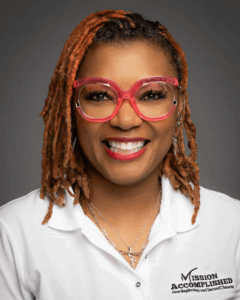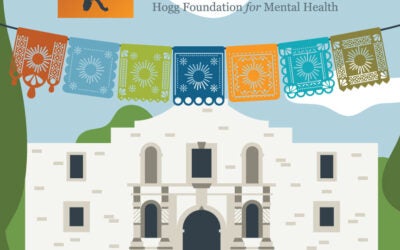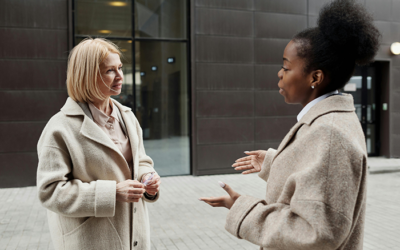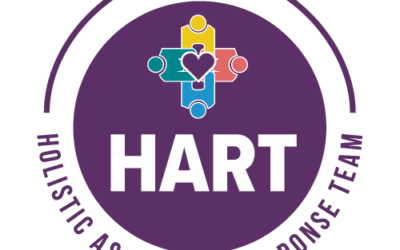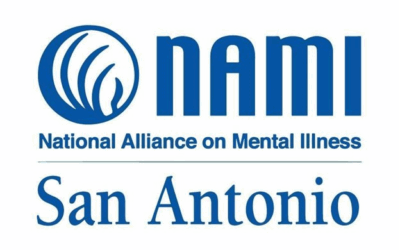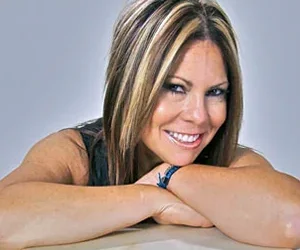Ebonie Trice is the founder of Mission Accomplished, an Austin area nonprofit with a mission to provide services and resources to individuals and families experiencing homelessness. Services include, but are not limited to mobile laundry services, care packages, and connections to other resources to assist them in transitioning to stable, self-sufficient, and healthy lifestyles. She will be presenting at two panels during the upcoming Robert Lee Sutherland Seminar (RLS): one titled, “Creating What’s Missing” and the other a “Short Take” session titled, “Threads of Change: Weaving Volunteerism into the Fabric of Community Health.”
We spoke to Ebonie about Mission Accomplished’s focus on dignity, connection, and trust. Our interview has been lightly edited for length and clarity.
The sessions you’ll be presenting are part of the Community Outreach and Engagement track. What are some of your goals for RLS, and what do you hope attendees take from your sessions?
My goal is to inspire attendees to see that meaningful change often starts small—with God, a single idea, or an unmet need in the community. By sharing my journey of moving from community work into founding a nonprofit, I want to show that anyone can step into that gap and create something transformative.
I hope people leave the session feeling connected, encouraged, and motivated to reimagine what’s possible in their own work. This won’t just be a conversation about the challenges—we’ll focus on hope, solutions, and what it takes to sustain ourselves while serving others.
The links between experiencing homelessness and mental health issues are deep and numerous. How does an event like RLS benefit from having your perspective in the room?
Events like RLS create a powerful space to share real community experiences that often get overlooked in larger systems-level conversations. My perspective is rooted in the lived realities of the people we serve—how the lack of something as basic as clean clothes can deepen feelings of isolation and hopelessness.
By bringing that voice to the room, I can help ground discussions about homelessness and mental health in humanity. It’s one thing to talk about statistics; it’s another to share how dignity, connection, and trust can become the first steps toward healing. That’s the perspective I hope to bring—a reminder of why this work matters and the ripple effects it can create.
What’s unique about your approach to your work?
What’s unique about our work at Mission Accomplished is that we center dignity first. We don’t just provide laundry services; we create moments of connection and care. Clean clothes might seem small, but they can give someone the confidence to go to an appointment, apply for a job, or simply feel human again.
We also focus on listening and adapting to the needs of the community rather than coming in with a set agenda. Our programs are co-created with the people we serve, which makes the work more responsive and sustainable.
Can you share one personal anecdote that testifies to the impact you’re trying to make?
I remember a young man who was already waiting at the site before we arrived. As soon as he saw us, he ran over and asked if he could help us set up—and if he could be the first person to have his clothes washed. He shared that he had an important interview later that afternoon and needed clean clothes so he could take a shower and feel prepared.
What was so meaningful about this moment was how he scheduled his entire day, including the interview, around our laundry services. Of course, we let him go first, and while there wasn’t really any help we needed with setting up, we welcomed his offer. It showed how much he wanted to feel part of the process, not just a recipient of services.
Moments like that remind me why we do this work. It’s not just about clean clothes—it’s about restoring dignity, helping people feel seen and valued, and supporting them as they take steps to re-engage with society. Everyone, no matter their situation, deserves to feel human and to have access to something as basic as clean laundry.
Related Content
Three Things to Know About Meeting with Policymakers
From the Robert Lee Sutherland Seminar Policy Pre-seminar, here are three things to know about meeting with policymakers.
Rising Voices: Telling Your Story
When personal stories are shared with policymakers, not only do they draw attention to important issues, but they also resonate in ways that facts and data alone cannot.
2025-2026 Mini-Grants for Innovation, Capacity-Building, and Community Well-Being
The Hogg Foundation is pleased to announce the recipients of the 2025 Robert Lee Sutherland Mini-Grants.
Toward a More Effective 911 Alternative
This blog post is guest authored by Larry D. Brown Jr., PhD, associate director for Community Health and Violence Prevention Services at Harris County Public Health. He presented a session at the Robert Lee Sutherland Seminar as part of the Building Partnerships and Collaboration track.
Stronger Together
This blog post is guest authored by Doug Beach, executive director of NAMI Greater San Antonio. He will be presenting at the Robert Lee Sutherland Seminar in the Building Partnerships and Collaboration track.
Rhythms of Resilience: An Early Look at the Robert Lee Sutherland Seminar
This year’s RLS seminar will feature a keynote experience unlike any other—a powerful blend of rhythm, connection, and healing led by Grammy Award–winning percussionist Nina Rodriguez.

